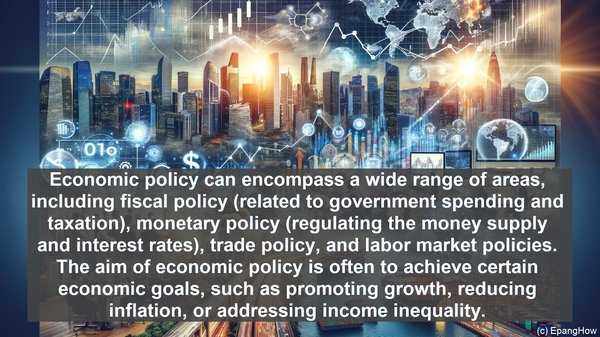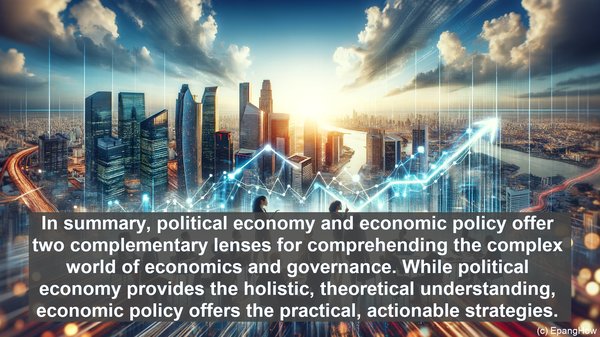Introduction: The Intersection of Politics and Economics
Greetings, audience! Today, we embark on a journey to unravel the intricate relationship between politics and economics. At the core of this exploration lie two distinct yet interwoven concepts: political economy and economic policy. While both pertain to the realm of governance and its impact on the economy, they diverge in their focus and scope.
Political Economy: The Holistic Perspective
Political economy encompasses a broad framework that examines the interplay between political and economic factors. It delves into the underlying ideologies, power dynamics, and institutional structures that shape economic systems. By analyzing historical, sociological, and philosophical dimensions, political economy seeks to comprehend the larger forces at play in the economic realm. It often involves theoretical frameworks, such as Marxism or neoliberalism, to understand the distribution of resources, wealth, and opportunities within a society.

Economic Policy: The Pragmatic Approach
In contrast, economic policy is more focused and action-oriented. It refers to the specific measures, strategies, and decisions formulated by governments or central banks to influence the economy. Economic policy can encompass a wide range of areas, including fiscal policy (related to government spending and taxation), monetary policy (regulating the money supply and interest rates), trade policy, and labor market policies. The aim of economic policy is often to achieve certain economic goals, such as promoting growth, reducing inflation, or addressing income inequality.
The Interconnection: How They Influence Each Other
While political economy and economic policy may seem distinct, they are intricately linked. Political economy provides the broader context and understanding that shapes economic policy decisions. It sheds light on the underlying interests, power dynamics, and societal factors that influence policy formulation. At the same time, economic policies, when implemented, can have significant political ramifications. They can shape public opinion, affect the distribution of resources, and impact social dynamics. Thus, a comprehensive understanding of political economy is crucial for formulating effective economic policies.

